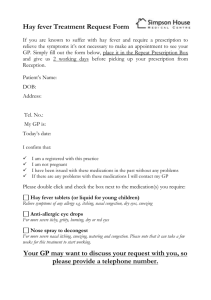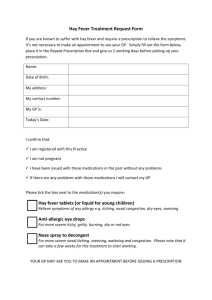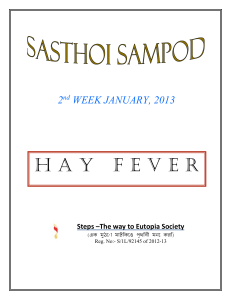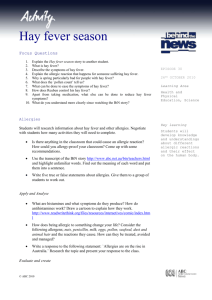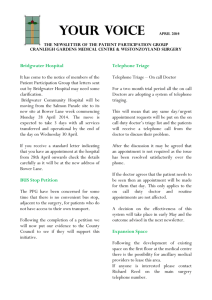9-5
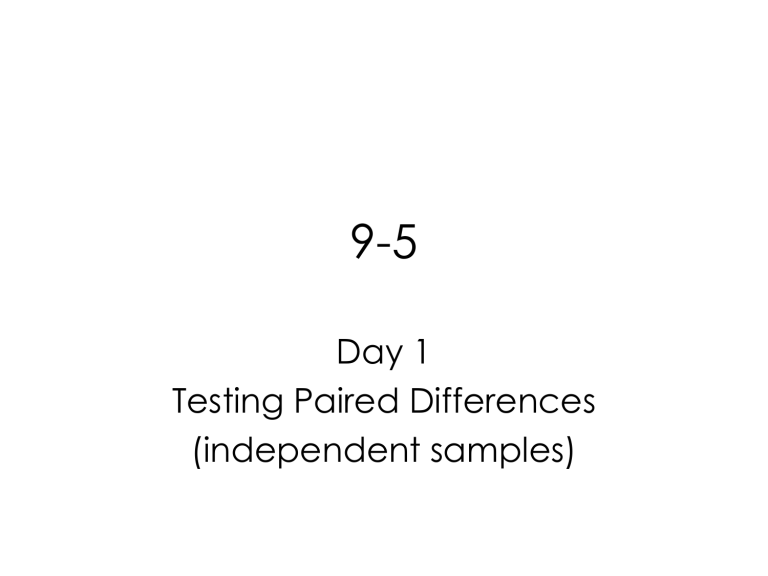
9-5
Day 1
Testing Paired Differences
(independent samples)
What do you do if samples are independent?
Comparing period 5 Calc average on the midterm and period 6 Calc average midterm?
Get a random sample of seniors and compare
GPAs of girls to GPA of boys…
If the samples are independent then you compare mean differences using a new formula
σ Known or Unknown
Customary…
2
0 μ
1
μ
2
2
0 μ
1
μ
2
2
0 μ
1
μ
2
2
0 μ
1
μ
2
Left Tailed
Right Tailed
Two Tailed
And the usuals…
x
1 and x distributions with mean μ both n
2
1 should have normal and n
2
1 and μ are larger than 30, then the CLT assures you that the
2
. If distributions of the xbars are normal.
How do I do it?
So glad you asked!!
Using the same pattern
1. State null and alternate hypotheses
2. Compute your test statistic
3. Find the P-value that corresponds to the sample test statistic
4. Conclude
5. State your conclusion
σ known
z
x
1
x
2
2
z
σ n
2
1
1
σ n
2
2
2
x
1
x
2
σ n
2
1
1
σ n
2
2
2
σ unknown
t
x
1
x
2
2
t s 2
1 s 2
2 n
1
n
2
x
1
x
2
s n
2
1
1
s n
2
2
2
Example
A random sample of n
1
=12 winter days in
Denver gave a mean pollution index of 43.
For Englewood (a suburb of Denver) a random sample of n
2
=14 winter days gave a sample pollution index of 36. Assume that pollution index is normally distributed, and previous studies show σ
1
= 21 and σ
2
= 15.
Does this information suggest that the mean population pollution index of Englewood is different from Denver in the winter?
Use 1% level of significance.
Example
A random sample of n
1
=16 communities in western
Kansas gave an average rate of hay fever (per
1000, under 25 yrs of age) of 109.50 with a sample standard deviation of 15.41. A random sample of n
=14 regions in western Kansas gave an average rate of hay fever (per 1000, over 50 yrs of age) of
99.36 with a sample standard deviation of 11.57.
2
Assuming that the hay fever rate of each group is approximately normal, does the data suggest that the 50+ has a lower rate of hay fever?
Use a 5% level of confidence.
